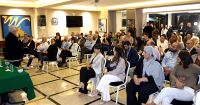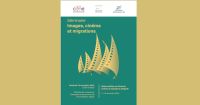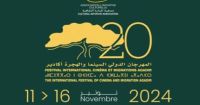Let me begin by acknowledging that my perspective on Islam is inevitably formed by who I am, where I live and who I relate to on a day to day basis. I speak as someone who is a Christian Minister, and community worker, with an academic background in Pastoral Theology, living and working in an area where the majority faith is Islam. I work and socialise with Muslims daily. There will be many other perceptions of Islam from other corners of the UK. Many people will never have engaged personally with someone of another faith. Some of course, don't want to engage with a person of any faith at all. Some are delighted at the diversity of our country and some undoubtedly feel threatened. Assume throughout this paper that I am happy living in a multi-cultural and multi-faith society.
It is important to acknowledge that relationships between Britain and Islam do not begin with a recent "clash of civilisations" but within a deep rooted historic antipathy. Our culture is imbued with a memory of conflict and rivalry, of the exotic, mysterious, dangerous. Islam is a world to discover and those who seek it are the adventurous, the explorers, the exceptional not the average person in the street. The Muslim is undoubtedly the "other" against which "we" can decide to engage or attack. But the Muslim is not "us".
This perception is exploited by extremist racists and needs to be challenged. But it is also part of more subtle and insidious perspectives which are used within the media and supposedly intelligent and even liberal discourse. Islam is the "folk devil" of our culture.
If this is our starting point and the destination we are aiming for is a milieu of common ownership of public space in which we can learn from each other and grow together then we have a long journey to travel. Those of us who want a society rooted in respect, dignity, equality, justice and mutual enrichment must accept the reality of that history and cultural instinct. This is more than handling the worst excesses of extreme racists. It is about fundamental change - a re-ordering of mindsets - a re-writing of history books-a complete overhaul of theological perspectives.
A key component within our relationship is the differential disadvantage experienced by Muslims in the UK. There are 2.5 million Muslims, representing 3% of the UK's total population. It is a young community, with 71% under the age of 35 and 34% under 16. 5% of pre-school age children are Muslim. So we see that it is growing of itself aside from immigration. Muslims are living in the large urban centres. They tend to be more segregated from other communities than are Hindus or Sikhs and ethnic Muslim groups tend to live separately from each other. One third live in the top 10% most deprived areas. 41% live in deprived housing, 32% in the most overcrowded, 28% in social rented housing and the highest proportion (12%) without central heating of any faith group.
Muslims have the highest rates if ill health (14%) of any faith group. 31% of Muslims of working age have no qualifications. 14% have GCSE or equivalent compared to a national average of 22%. 12% have A level or equivalent compared to national average of 24% and 4% have degrees compared to 9% of the overall population.
Unemployment is three times the national average and young Muslims (16-24) have the highest unemployment level. Muslims of working age have the highest rates of economic inactivity for men (30%) and for women (68%) compared to Christian men (16%) and Christian women (25%). 40% of Muslim men work in the distribution, hotel and restaurant industry. Muslim and Sikh men are least likely to be working in managerial or professional occupations and the most likely to be working in low skilled work. [i]
7-8000 Muslims are in prison (7% of the total male population) which is caused by a complex interaction dependent upon both legal and non-legal factors including issues of discrimination, prejudice, including negative policing and sentencing.
Social exclusion and alienation is deep rooted and not just linked to recent history.
The events of 9/11 in New York and 7/7 (when four British suicide bombers successfully exploded bombs on the London transport network) clearly inform both discourse and policy. The radicalisation of young Muslims is, in the words of Yahya Birt a "small scale problem with large scale consequences". To an observer like me it begs the questions - "What drives a young person to blow themselves up? What is so awful in their lives that they have nowhere else to turn?" Radicalisation is complex and difficult for someone like me to comprehend. I have difficulties understanding Christian fundamentalists so I cannot possible enter into the mindset of the young radical. But it does not take too much of a leap of the imagination to realise that day-to-day discrimination will take its toll on many if not the overwhelming majority of young people even if mercifully they do not express it through violence.
We cannot deny the impact of foreign policy on relations with the Muslim community. Most people in the UK do not support the interventions in Iraq or Afghanistan but it is not uppermost in their minds. Coverage of the recent events in Gaza in the mainstream media in the UK was less graphic than on Al-Jazeera but the injustice and the tragedy was certainly communicated across the board. But the Muslim community see it in a much more immediate light. We really lack a point of communication on what is happening to the wider Muslim world.
Given our history in Europe, Christians do not want to be in any sense negative to our Jewish brothers and sisters. We have too much to repent. But neither do churches want to be deaf to the cry of the Palestinian. Bethlehem in particular has deep emotional draw for us.
Governmental reaction to the events has created a focus on security for which we might be grateful. It is comforting to know that terror attacks are foiled and that we can travel still in London without too much anxiety. And yet there is a price which needs to be recognised. The first is the tightening of immigration controls and the lack of human rights for migrant workers. The second is the rapid erosion of the civil liberties of all citizens. The third is the culture of suspicion which now surrounds the Muslim community in the UK. This is felt when people pass through immigration at the airport, when Police stop and search and media innuendo. The frustration within Muslim communities has much legitimacy and needs a voice which should not be confused with or defined as a propensity to terrorism.
The conclusion which I have drawn is that relations between Christians and Muslims are not just theological questions but also issues of social justice. Sometimes we say "before you can do theology you need to eat." It seems before we can have a full theological discourse between our faiths we first of all need to engage at the level of social justice - to put our relationship in order (the biblical word for this is righteousness). It seems to me that the important theological questions are not doctrinal but pastoral. These pastoral questions do not start with "how can we help?" or "how can we understand each other?" but with "how can we belong to each other within a common space without denying who each of us are?"
So how are Muslims positioned within the British state? The overwhelming majority of Muslims living in the UK are British and also of 2nd 3rd 4th and 5th generation migrants. So there should be no exclusion, no discrimination, no suspicion. Racism is outlawed in the UK yet many feel that Islamophobia is regarded as an acceptable expression of racism.
It should be noted that the United Kingdom does not have a written constitution. Privilege is given to one Christian Church - the Church of England. The Queen as Head of State is also Head of the Church. Bishops of the Church of England sit in the upper chamber of the Parliament. This is deeply problematic but one which politicians are reluctant to tackle. My own Christian tradition, the Reformed Church, is opposed to a link between church and state. We prefer that freedom of conscience and freedom of assembly and worship be enshrined in constitution alongside an obligation to obey the law and a responsibility to oppose unjust laws. Some Muslim leaders in the UK quite understandably call for parity of treatment between faiths. However, as there isn't even parity between Christian groups it is problematic. I prefer the notion of a truly constitutional democracy in which human rights are enshrined with no special treatment for any faith.
In addition to the unsatisfactory settlement arising from the Reformation in which the Church of England has primacy, there is also the demand of secularism. Most secularists had assumed that religion had been relegated to a marginal and private sphere. They resent the continuing power base of the Church and now fear that a strong Muslim (and fundamentalist Christian) moral voice will undermine their progress. People of faith are opposed regardless of what that faith is. This is made even more complex as Muslims are not so easy to categorise within the "rainbow coalitions" of women, gay people, black and minority ethnic communities and people with disabilities. Muslims, along with traditionalist and fundamentalist Christians, from the perspective of liberal Westerners are perceived as holding back the freedoms which have been gained through the assertion of identity politics.
The most challenging question then is how we can build up a new settlement based on trust. This relationship is not just about mutual understanding between Christians and Muslims but within the whole fabric of society, including strident secularists. As a Christian, I cannot know what it is like to be a Muslim. Professor Ninian Smart who undertook ground-breaking work on the phenomenology of religion talked of seven dimensions of religion[ii]. One of these he called "experiential". Every faith is a lived experience. I cannot ever know what it is to pray in a large congregation at Friday Prayers in a mosque or to recite the Qur'an. Just as I cannot expect you to understand what it is to sing a Protestant hymn in a chapel designed to allow the voices to echo or join to a prayer circle or read the Bible with devotion. What we experience is deep rooted in culture, in memory, in the soul. No one should deny us our right to hold onto that experience and to enlarge it.
I also know that if I hear someone say "Christians believe..." then I can almost certainly find a Christian who does not belief that particular aspect of faith or practice. So when some tells me "Muslims believe", I imagine it is probably more accurate to say that some or most Muslims believe. We must never narrow the reach or dimensions of a faith.
However, across the boundaries of faith there are going to be strong links of mutuality and solidarity. We understand the world from the perspective of community and not just self. We understand the world from that which is beyond ourselves and what is deepest within us. As human beings and as people of faith we can, I believe, engage with each other beyond the scaffolding and outward expressions of faith.
So in conclusion, for the UK to be a space in within which Muslims, Christians, people of all faiths and non-believers coexist, we need a milieu of social justice and equality out of which new relationship of trust can emerge. These new relationships can and must transcend our respective histories creating a new space for our separate integrities and our common humanity.
[i] Sources: ONS (2204) Focus on Religion ODPM (2006) Review of the Evidence Base on Faith
[ii] Doctrinal Mythological Ethical Ritual Experiential Social Material






